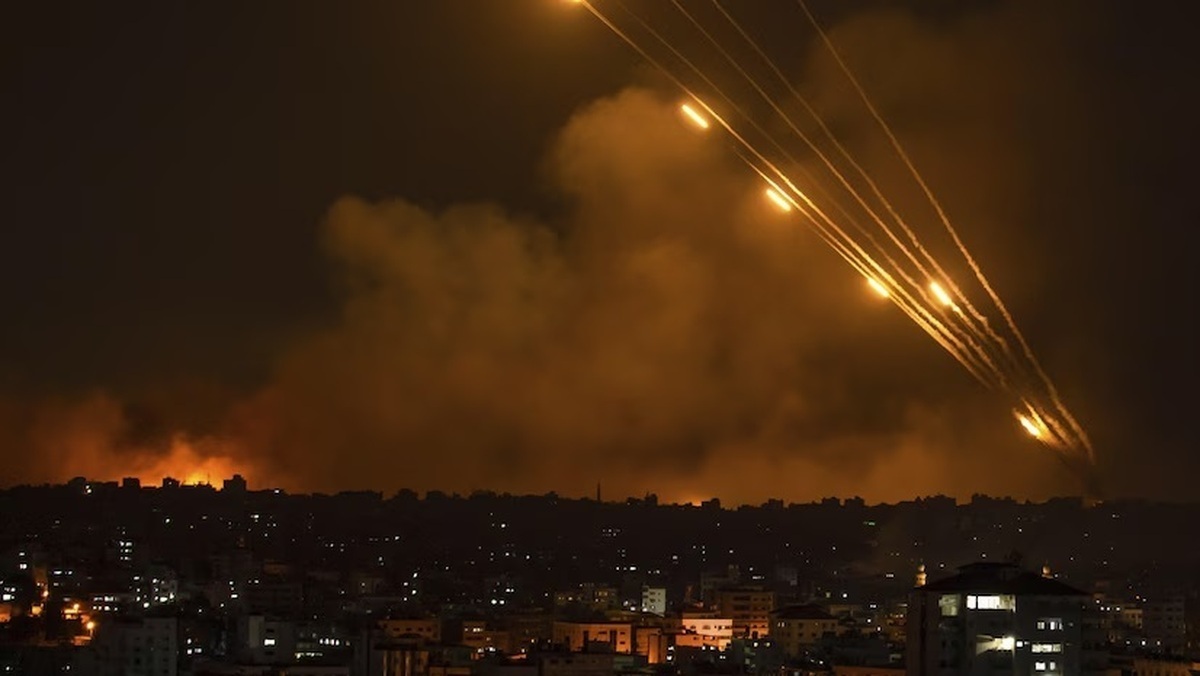The possibility of a direct attack from the Iranian soil and the consequent Israeli response are not the first military confrontation between Tehran and Tel Aviv. In April, bombing of Iran's consulate in Damascus drew a missile and drone attack by Iran under Operation True Promise that targeted some important Israeli military bases, including Nevatim air base in Negev desert. The military section of Iran's operation against Israel was designed in three parts: First, launching suicide drones, then cruise missiles, and finally ballistic missiles. After this attack, the BBC reported that the investigation confirmed the damage caused by Iran's attack on Nevatim base.
Currently, considering the terrorist act in Iran, the response to this crime is highly likely, and after Iran's attack, the Israeli military response is also not far from expected. In the meantime, a fundamental question is here: How will the Israelis respond to Iran's military attack? To answer this question, 3 assumptions can be considered:
Military response?
Most likely, Israel's response to Iran's military attack will be a military one. The military formation in the region after Iran's threat against Israel confirms the military response. Beyond this, last Monday, Israeli Defense Minister Yoav Galant, while visiting the underground command center of the air force in Tel Aviv, said that the air force should prepare for a "quick transition to offense." This means that the Israelis are looking for a military response after a possible Iranian attack. One day before, Yoav Gallant had claimed in a conversation with journalists that Tel Aviv has completed the necessary preparations to respond to any scenario from Iran.
US's certain support to Israel
It should be taken into account that the Israelis have the US forces beside them in any attacks from Iran. On Monday Gallant and the Chief of General Staff Gener Herzi Halevi held an evaluation meeting with General Michael Korilla, the commander of the CENTCOM who had visited Tel Aviv. On Tuesday, Al Jazeera TV reported that US Secretary of Defense Lloyd Austin had a conversation with Israeli counterpart Gallant about "threats from Iran, Lebanon's Hezbollah and other groups supported by Tehran."
Beyond these talks, the US has sent a large amount of weapons to West Asia in the past few days. The New York Times wrote on Friday that the US military is moving equipment and transferring additional defense capabilities to the Middle East to defend Israel against a possible attack by the Islamic Republic. On Wednesday, Bloomberg quoted a US defense official as confirming that the US is preparing to deploy a squadron of 16 to 24 F-22 stealth fighter jets to the region this week. Reports suggest that the new US military deployment in the region is to protect Israel against threats such as missiles and drones. Therefore, there can be no doubt in the US's support for Israel in a possible Iranian attack.
Status of Israel in any military response to Iran
What we should consider meanwhile is the form of the Israeli response.
US support is defensive not offensive: Despite the US defending of Israel against Iran's attack, it does not seem that the Americans are interested to join Israel in a military response to Iran. In fact, the limits of Washington's cooperation with Tel Aviv are up to the defense of Israel, but in the current situation, it is far from expected that the US will cooperate with Israel's military response against Iran. Jonathan Weiner, the deputy adviser of the American National Security Council, said in an interview with CBS News that the general purpose of deploying new forces in the Middle East is to defuse tension in the region, as well as deter and repel the expected attacks and prevent broader regional conflict. This statement means that the US is not looking to expand the war in the region and join Israel in a military response to Iran. The upcoming presidential elections in the US and the simultaneous conflict of this country in Ukraine and the war in Gaza have made the Americans unwilling to enter into a new war and conflict in the region.
Arab countries step aside: Also, Arab countries are afraid of joining a regional war against Iran. Jordan, the closest neighbor of Israel, said that it will not allow use of its airspace by any side of the confrontation, and the Jordanian Foreign Minister Ayman Safadi visited Tehran over the weekend to help de-escalate the tensions. Another Arab country in the region is Saudi Arabia whose alliance against Iran with the Israelis is unlikely. Saudis currently pursue close relations with Tehran and do not seek to disrupt their peace with Iran. Even last month, the Arab kingdom denied allowing Israel to use its airspace to launch attacks on Yemen. The UAE is another Arab country that has the largest trade volume and geographical proximity in the Persian Gulf with Iran. Dubai and other Emirati cities are very concerned about a war a few miles from their northern coasts, and they know that joining Israel's war against Iran means that the war will be expanded to the streets of Sharjah, Dubai and Abu Dhabi. Therefore, it seems impossible for the UAE to join Israel in the war against Iran, because the very existence of the UAE will be in danger. Iraq and Syria are political partners of Iran, and their tendency is to Iran. Therefore, Arab countries' cooperation with Israel in any military action against Iran is unthinkable.
Given these conditions, it can be said that the Israelis
will face multiple obstacles responding to Iran's attacks and actually
the failure for build a regional alliance is the biggest barrier ahead
of Tel Aviv to engage in a full-scale military confrontation with Iran.
/129

